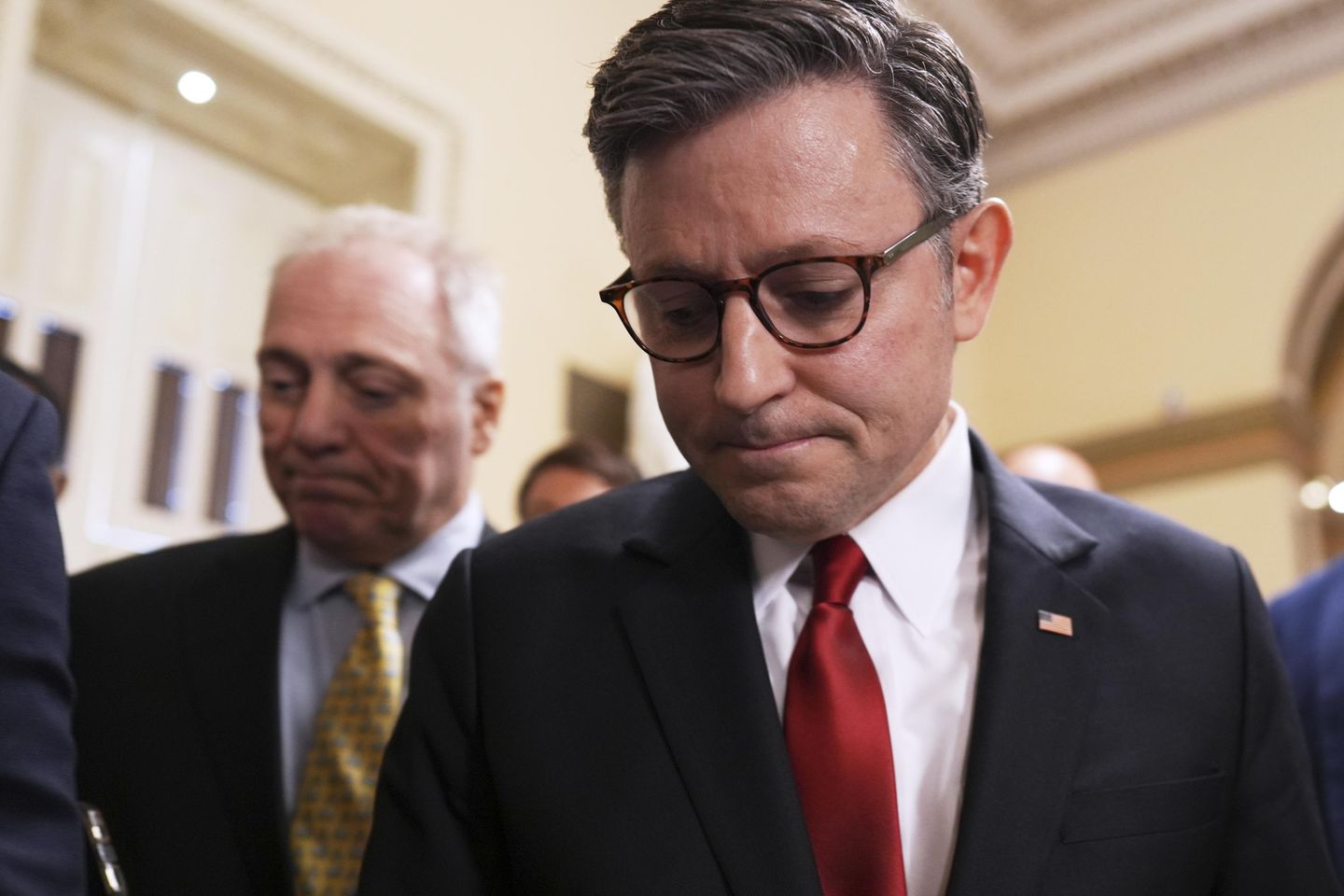
Don’t miss the full story from our staff writers, whose reportage is the basis of this article.
President Trump’s comprehensive tax and spending legislation hit a roadblock in the House on Wednesday as Republican leaders struggled to unite their caucus around the Senate-passed version of the bill. Despite the president’s self-imposed July Fourth deadline, House Freedom Caucus Chairman Andy Harris indicated the legislation won’t be completed by the holiday, though negotiations will continue.
The impasse centers on fundamental disagreements within the Republican Party over the bill’s spending provisions. House Speaker Mike Johnson was unable to secure enough votes to even begin debate on the measure after hours of negotiations with holdout members who oppose various aspects of the Senate’s version.
The legislation’s centerpiece includes making Mr. Trump’s first-term individual and small business tax cuts permanent while adding new temporary tax breaks that fulfill key campaign promises: eliminating taxes on tips, overtime pay, Social Security benefits, and car loan interest. The bill also incorporates traditional Republican priorities such as domestic energy production incentives, border security funding, immigration enforcement measures, and national defense spending.
However, the more than $1 trillion in proposed spending cuts has created a schism within the party. Moderate Republicans, particularly those from suburban and urban districts, are concerned about deeper Medicaid reductions the Senate added, especially stricter limitations on state provider taxes. Meanwhile, fiscal conservatives in the House Freedom Caucus demand even more aggressive spending cuts across all government programs.
The tension escalated after Senate changes that slowed the phase-out of clean energy credits, frustrating conservatives who had initially secured provisions to accelerate their repeal.
Rep. Eric Burlison, a Freedom Caucus member, threatened to block the bill unless additional spending cuts are negotiated, arguing the current version violates promises that the legislation wouldn’t increase the deficit when accounting for projected economic growth.
Mr. Trump and Vice President J.D. Vance personally intervened, hosting multiple White House meetings with various Republican groups to build support. These sessions proved partially successful, with some moderate members expressing reduced concerns after hearing detailed explanations about a $50 billion rural health transformation fund and clarifications on state-directed payment provisions.
Rep. Dusty Johnson of the Main Street Caucus noted that Dr. Mehmet Oz, who leads the Centers for Medicare & Medicaid Services, provided crucial explanations about how the rural health funding would benefit providers beyond just rural hospitals.
With Republicans able to afford only three defections, the outcome remains uncertain. While Rep. Thomas Massie of Kentucky maintains his opposition, Rep. Warren Davidson of Ohio announced his support Wednesday evening, citing the bill’s pro-growth tax policies, border security measures, and enhanced work requirements for federal assistance programs.
This article is written with the assistance of generative artificial intelligence based solely on Washington Times original reporting and wire services. For more information, please read our AI policy or contact Ann Wog, Managing Editor for Digital, at awog@washingtontimes.com
The Washington Times AI Ethics Newsroom Committee can be reached at aispotlight@washingtontimes.com.
















